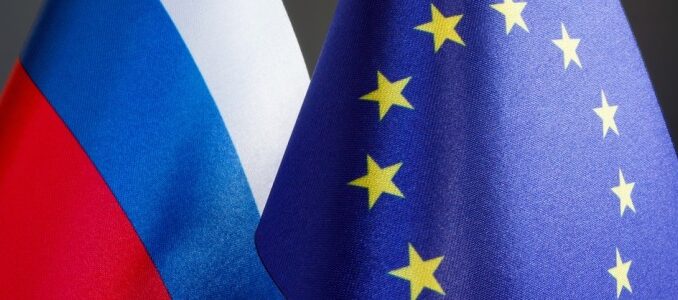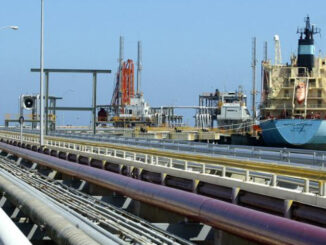
In its relentless pursuit of virtue-signaling hills that it is willing to die on within minutes, several months ago the EU had a brilliant idea: let’s implement a toothless oil price cap on Russian oil exports, one which actually has zero impact on deeply discounted Russian oil and thus doesn’t lead to any more European energy shocks, but because of the optics and the much “lower” permitted transaction price, it will make for great headlines and show the world just how powerful the EU is.
Well, the plan almost worked… until Poland the Baltics forgot to read the fine print, thought that Europe actually does mean business, and blew up the deal.
Recall on Friday, negotiations on the Russian oil price cap were suspended – despite a willingness by most European nations to just cross the checkmark and move on – as Poland and the Baltic states objected to a proposed ceiling of $65.
There was some hope that this opposition was just for show, and that come Monday the Poles would relent after some “closed door” negotiations, Europe would slap a $65 price cap, Russia would continue to sell its oil to China and India, and – quietly – to Europe, and gradually renormalize a fractured oil market where India and China pay a 25% discount for oil while the rest of the world has to pay a premium as an offset.
However, it was not meant to be, and on Monday European Union governments again failed to agree on a price cap on Russian seaborne crude oil, as Poland again insisted that the cap had to be set lower than proposed by the G7 to cut Moscow’s ability to finance its invasion of Ukraine, diplomats told Reuters.
“There is no deal. The legal texts have now been agreed, but Poland still can’t agree to the price,” one diplomat said. No new date for talks has been set yet, diplomats said, even though a far worse outcome may await Europe in just one week: as a reminder, the price cap mechanism is to enter into force on Dec. 5. And if there is no agreement on the G7 price cap idea by next Monday, the EU would implement harsher measures agreed at the end of May – a ban on all Russian crude oil imports from Dec. 5 and on petroleum products from Feb. 5, Polish diplomats said.
That would be a truly catastrophic scenario, and one which could promptly send the price of oil into the stratosphere as JPMorgan explained not too long ago.
To be sure, it’s not too late for Poland to fall in line: Hungary and two other landlocked central European states secured exemptions from that ban for the pipeline imports they rely on. Meanwhile, even the G-7 group of nations has proposed a softer version of the EU ban to keep oil supply to the global economy steady, because Russia supplies 10% of the world’s oil (see, it was all theater, everything – from day one – and politicians knew it as soon as they did the math).
It proposed that the EU and other global customers keep buying Russian crude, but only if its price is at or below a G7 agreed level. That would cut the Kremlin’s revenues. The G7 has proposed a cap of $65-70 per barrel, but Poland and some others argue this will not hurt Moscow because Russian crude is already trading below that range at $63.50, and after today’s oil price rollercoaster, the “Russian” price briefly dipped below $60.
With Russian production costs estimated at around $20, Moscow has a very large profit from its oil exports. Poland, Lithuania and Estonia have been pushing for a price cap of $30 per barrel.
And yet, despite consensus that Polish opposition would be overturned, the country’s resolve has only hardened: “The Poles are completely uncompromising on the price, without suggesting an acceptable alternative,” the EU diplomat said. “Clearly there is growing annoyance with the Polish position.”
Which is hilarious because only Poland is adhering to the principle of what the price cap was supposed to achieve – namely choke off Russian oil profits; and yet for all the pompous rhetoric by G-7 nations, everyone is happy to keep the spectacle going knowing full well that this is just one giant virtue-signaling scheme. Everyone, except Poland that is… and as a result the “annoyance” is not with Putin but with the “Polish position” which is keeping fat European technocrats away from their well-deserved 3-star meals for a fake job well done.
Unlike Poland, other countries quickly fell in line when some money transfers were made: Malta, Cyprus and Greece were worried the G7 cap proposal was too low, hitting their large shipping industries, but diplomats said they got some “concessions” in the legal texts and were no longer an obstacle to a deal. Translation: the three countries would be the primary beneficiaries of Russian ship-to-ship transfers, which then flow through to the rest of Europe.
The idea to enforce the G7 cap is to prohibit shipping, insurance and re-insurance companies from handling cargoes of Russian crude around the globe, unless it is sold for less than the price set by the G7 and its allies.
As Reuters concludes, “because the world’s key shipping and insurance firms are based in G7 countries, the price cap would make it very difficult for Moscow to sell its oil for a higher price”; what Reuters meant is that only Poland is doing everything in its power to sell its oil for a higher price, when the rest of the EU and G7 have already decided to turn the page on this matter.



